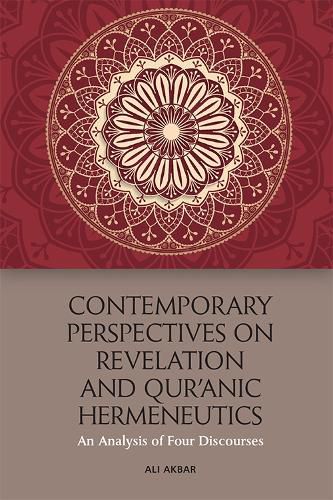Readings Newsletter
Become a Readings Member to make your shopping experience even easier.
Sign in or sign up for free!
You’re not far away from qualifying for FREE standard shipping within Australia
You’ve qualified for FREE standard shipping within Australia
The cart is loading…






A number of innovative hermeneutical approaches emerged in Muslim exegetical discourse in the second half of the 20th century. Among these developments is a trend of systematic reform theology that emphasises a humanistic approach, whereby revelation is understood to be dependent not only upon its initiator, God, but also upon its recipient, Prophet Muhammad, who takes an active role in the process. Ali Akbar examines the works of four noted scholars of Islam: Fazlur Rahman (Pakistan), Abdolkarim Soroush (Iran), Muhammad Mujtahed Shabestari (Iran) and Nasr Hamid Abu Zayd (Egypt). His study shows that the consequences of taking a humanistic approach to understanding revelation are not confined to the realm of speculation about God human relations, but also to interpreting Qur’?nic socio-political precepts. And the four scholars emerge as a distinctive group of Muslim thinkers who open up a new horizon in contemporary Islamic discourse.
$9.00 standard shipping within Australia
FREE standard shipping within Australia for orders over $100.00
Express & International shipping calculated at checkout
A number of innovative hermeneutical approaches emerged in Muslim exegetical discourse in the second half of the 20th century. Among these developments is a trend of systematic reform theology that emphasises a humanistic approach, whereby revelation is understood to be dependent not only upon its initiator, God, but also upon its recipient, Prophet Muhammad, who takes an active role in the process. Ali Akbar examines the works of four noted scholars of Islam: Fazlur Rahman (Pakistan), Abdolkarim Soroush (Iran), Muhammad Mujtahed Shabestari (Iran) and Nasr Hamid Abu Zayd (Egypt). His study shows that the consequences of taking a humanistic approach to understanding revelation are not confined to the realm of speculation about God human relations, but also to interpreting Qur’?nic socio-political precepts. And the four scholars emerge as a distinctive group of Muslim thinkers who open up a new horizon in contemporary Islamic discourse.